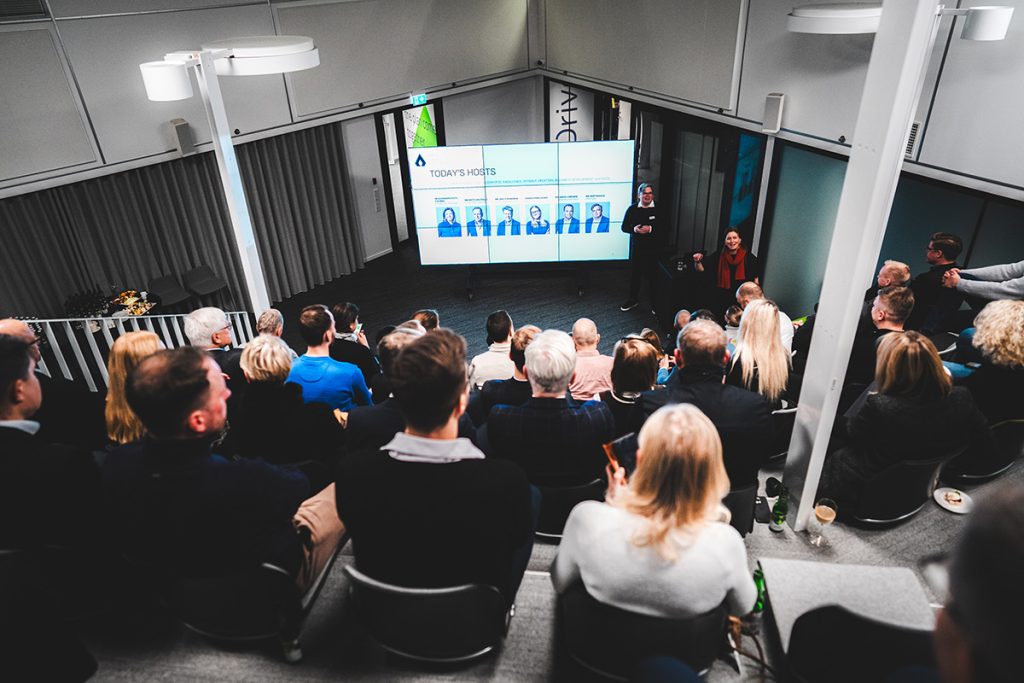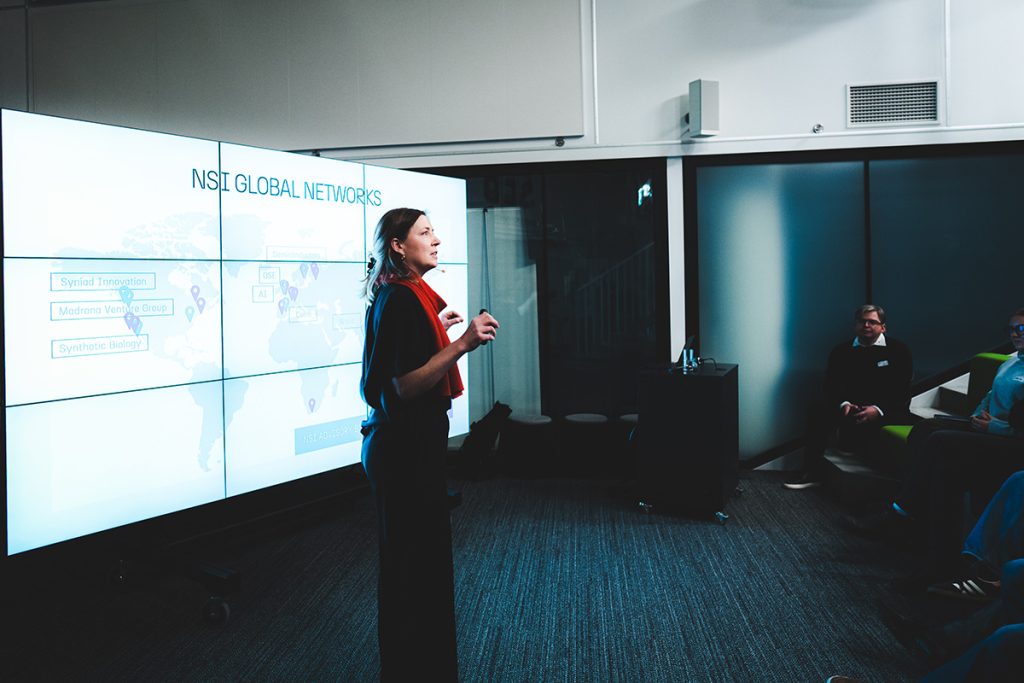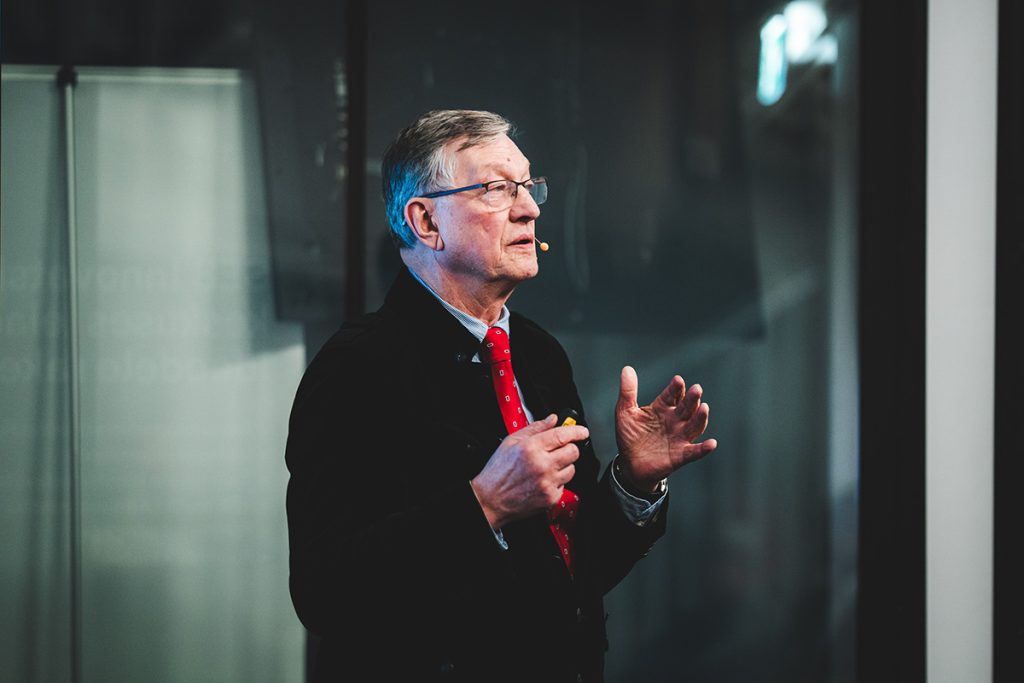On the second Monday of December we threw our first event, “Collaboration That Drives Impact: Science, Talent, and Private Capital.” in Estonia. Together with the attendees from across the ecosystem, we explored how the New Nordics are at the forefront of innovation and why now is the perfect time to invest in science-driven startups. With Sweden, Finland, Denmark, Estonia, and other regional leaders consistently ranking among the world’s most innovative economies, it’s clear that university research fuels groundbreaking technologies with lower risk than commonly perceived—fewer than 10% of spinouts fail within five years.
By bridging science, talent, and private capital, we can systematically accelerate the growth of deep tech ventures and boost regional ecosystems. This translates state-of-the-art research into high-impact businesses that drives global progress.
We were honoured to welcome Prof. Mart Saarma, President of the Estonian Academy of Sciences at the event,who delivered an inspiring presentation on “The Top Scientist’s Journey from Academia to Entrepreneurship and Exit.” He shared his personal journey from biotechnology research to entrepreneurship, underscoring the critical role of patents in the biotech and pharmaceutical industries. Prof. Saarma highlighted the many paths researchers can take to commercialise their discoveries, including licensing, collaborating with companies, or launching their own ventures. He emphasised that basic research is the foundation of radical innovation, but collaboration between academia and industry is key to achieving high-impact results.
Prof. Saarma also addressed challenges in Estonia’s innovation ecosystem, such as the limited number of high-tech companies and patents, and the need to attract foreign R&D investments. His proposed solutions included fostering stronger industry-academia partnerships, improving access to funding programs like EAS and EU grants, and encouraging a shift in how universities approach innovation. For those looking to create a successful startup, Prof. Saarma offered practical advice: focus on genuine innovation, secure patents, craft a compelling business plan, and find a CEO who understands both science and business.
Dr. Alexandra Gylfe, Founding Partner of NSI, delivered a presentation on “How Partnerships Between Academia and Capital Lead to Successful Ventures.” She outlined the key ingredients for successful deep tech investing, emphasising the importance of strong relationships with universities, expertise in research commercialisation, and a deep understanding of scientific complexity. Dr. Gylfe highlighted how NSI serves as an anchor investor in pre-seed and seed rounds for university spinouts, while also selectively participating in Series A and B rounds. By leveraging a global network and industry insights, NSI focuses on sectors such as advanced materials, semiconductors, AI, med tech, synthetic biology, and biotech.
Drawing insights from the Deep Tech Study Finland 2024, Dr. Gylfe pointed out that while strong research and public funding support deep tech, the idea-to-business timelines must be shortened to unlock true potential. She stressed the need for more ambitious, market-disrupting companies and underscored the importance of improving public-private collaboration. Her message was clear: strengthening partnerships between academia and capital is essential to transforming groundbreaking research into successful, high-impact ventures.
One of NSI’s portfolio companies, Perfat Techologies shared an inspiring story in his presentation, “What It Takes to Make It Happen.” Anton Nolvi, COO and co-founder of the company gave an overview of Perfat’s journey from lab to market, illustrating how determination, scientific innovation, and strategic partnerships can drive real-world impact. Perfat’s mission is clear: “To improve everybody’s wellbeing by supplying healthy and functional fats to the food industry.” By putting research into practice, Perfat develops sustainable, healthier alternatives to traditional fats, addressing key challenges in food production and nutrition.
Anton highlighted the challenges and successes of transforming lab discoveries into market-ready solutions, emphasising the importance of persistence, adaptability, and a clear vision. Perfat’s commitment to bridging science and business not only advances food technology but also demonstrates how research-driven startups can deliver tangible benefits to society
Thank you to all attendees for the insights and energy. We look forward to more collaborations that make a lasting impact!





Photos by Kristiina Tammik